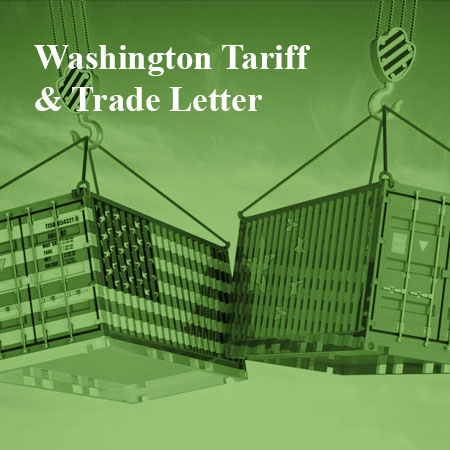Export Compliance Program Fourth Element: Recordkeeping
July 21, 2021
(The Exporting Source)
by Blake Gill *
In our last discussion, we reviewed the third element
of Export Authorization. Once you have determined your path to exporting an
item in a legal, compliant manner, you must keep the supporting documentation.
Recordkeeping is mundane, I’m sure we can all agree upon that, yet is critical
in protecting you in the future. If an issue arises but you have documentation
to support your decision, you face a much easier path than had you been
“winging” it!
The Export Administration Regulations (EAR) dictates recordkeeping in
part 762. In this part, the regulations describe how long to keep records, what
type of records to keep, how to reproduce records if they are requested, and
which documents are exempt from retention. While part 762 guides you on
recordkeeping, it is not all-encompassing. Some documentation may not be
required but is in the best interest of the company to be retained.
Creating a recordkeeping system will help the organization be consistent
in successful recordkeeping. The system will be dictated by the company putting
it to use; sometimes an electronic system is the best solution for a company,
others will find greater success in a paper hard copy system. Each system will
have its own set of pros and cons; however, most important is that the process
is consistent, reviewed frequently, and audited.
While some elements of recordkeeping are up to the organization to
determine, others are not. Section 762.6 of the EAR advises that parties are
required to keep export records for “five years from the latest date of export
or reexport activity” from the U.S. It is incredibly important for you and
your company to understand what actions justify the definition of this
activity.
Now that you and your organization understand what to record and when to
record it, roles and responsibilities must be established within your
organization that determine who is responsible for these actions. Procedures
for who will do the recording, when the recording will occur, and where the
records will be kept is critical for successful recordkeeping.
Keep in mind that recordkeeping is not synonymous with physical
shipments. Deemed exports and transfers of technology also require records to
be kept. This includes hiring foreign nationals, visitor sign-in sheets,
employee training, and company provided services. Also remember that each
regulatory body has their own set of requirements.
* Blake Gill is an experienced International Trade Compliance professional with a demonstrated history of work in the technology industry. He has many years of experience working with export control, customer screening and item classification over a wide variety of products. Additionally, Blake has performed the duties of Empowered Official at multiple international companies.
Welcome to the Exporting Source
Your one-stop resource for finding help to export to new customers, to learn about government export programs, to join export-promoting trade missions, to sign up for trade conferences and training, and to link to other exporting services. Whether you're an old hand at exporting or just getting started, the Exporting Source provides a place to locate foreign customers, export financing and foreign investment assistance.

The Export Practitioner
Providing readers with expert reports on changes to U.S. export licensing rules, enforcement policies and regulations for defense and dual-use products and technology.

Washington Tariff & Trade Letter
Providing exclusive, behind-the-scenes news and analysis every week of U.S. trade policies, regulations and legislation, export controls, trade sanctions, and enforcement of antidumping and countervailing duty laws.

Mastering Deemed Exports
An invaluable video training tool that helps exporters, universities and research laboratories alert all employees to the potential fines and legal sanctions that can come from violating EAR and ITAR restrictions on giving certain foreign nationals access to controlled U.S. technology.